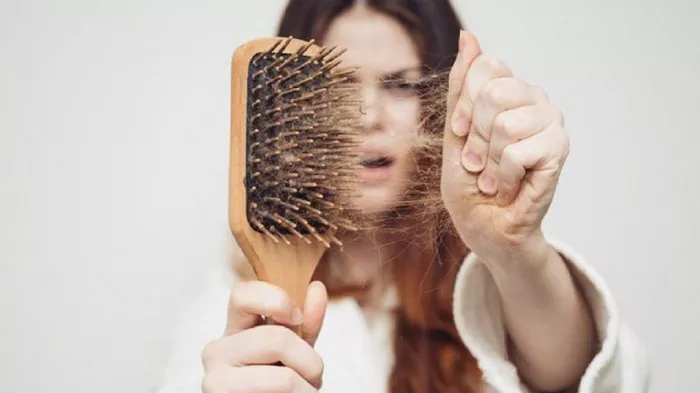In today’s fast-paced world, many individuals rely on blood thinners to manage various medical conditions. While these medications are essential for preventing blood clots and maintaining overall health, one of their unfortunate side effects can be hair loss. If you find yourself grappling with this issue, fear not – there are effective strategies to minimize or even halt hair loss caused by blood thinners. In this comprehensive guide, we will delve into six key ways to tackle this concern.
Understand the Link Between Blood Thinners and Hair Loss
The link between blood thinners and hair loss lies in the impact these medications have on the natural hair growth cycle. Blood thinners, such as warfarin or heparin, can disrupt the normal functioning of hair follicles. This disruption often leads to hair becoming thinner, more brittle, and prone to shedding. Hair loss is a known side effect of these medications, and understanding this connection is crucial when seeking solutions to mitigate its effects. To address this issue effectively, it’s important to explore various strategies under the guidance of healthcare professionals to ensure both hair health and overall well-being are maintained.
How to solve hair loss problem?
To address this issue, let’s explore some effective strategies:
1. Adjust Your Medication under Medical Supervision
Discuss your concerns about hair loss with your healthcare provider. They can evaluate your specific case and consider switching you to a blood thinner with fewer hair loss side effects. This adjustment should only be made under professional guidance to ensure your overall health isn’t compromised.
2. Opt for Topical Minoxidil
Topical minoxidil is an FDA-approved over-the-counter medication that can stimulate hair growth. It’s essential to consult your doctor before using minoxidil, but this treatment can help counteract the hair loss effects of blood thinners.
3. Incorporate Hair-Friendly Nutrients into Your Diet
Certain vitamins and minerals, such as biotin, iron, and zinc, are essential for hair health. Consult a registered dietitian to develop a diet plan rich in these nutrients. A balanced diet can help mitigate hair loss and improve hair quality.
Prioritize Scalp Care and Gentle Hair Handling
Hair loss prevention begins with proper scalp care and gentle hair handling. Here are some tips:
1. Use a Mild, Sulfate-Free Shampoo
Avoid harsh shampoos that may exacerbate hair thinning. Opt for sulfate-free, mild shampoos that cleanse your hair and scalp gently.
2. Massage Your Scalp Regularly
Massaging your scalp enhances blood circulation to the hair follicles, promoting healthy hair growth. Use your fingertips to gently massage your scalp in a circular motion for a few minutes daily.
3. Avoid Heat Styling and Tight Hairstyles
Heat styling tools and tight hairstyles can put stress on your hair, making it more prone to breakage. Embrace natural styles and let your hair breathe.
Explore Platelet-Rich Plasma (PRP) Therapy
Platelet-rich plasma (PRP) therapy is a cutting-edge treatment that can help combat hair loss. It involves drawing a small amount of your blood, processing it to isolate platelets rich in growth factors, and then injecting this plasma into your scalp. PRP therapy can stimulate hair follicles and encourage new hair growth.
Manage Stress and Anxiety
Chronic stress and anxiety are known contributors to hair loss. Engage in stress-reduction techniques such as meditation, yoga, or deep breathing exercises. Additionally, consider seeking professional help from a therapist or counselor to address underlying emotional issues.
Protect Your Hair from Environmental Damage
Environmental factors can exacerbate hair loss. Shield your hair from excessive sun exposure, pollution, and harsh weather conditions by wearing hats or scarves. Additionally, use products with UV protection to safeguard your hair from sun damage.
Be Patient and Consistent
Hair regrowth takes time, and it’s essential to remain patient and consistent with your chosen remedies. Monitor your progress and consult with your healthcare provider regularly to make necessary adjustments to your hair care routine and medication.
See Also: Types of Cancer That Can Cause Hair Loss: All You Need To Know
In conclusion
Hair loss caused by blood thinners can be distressing, but there are several effective strategies to address this issue. By understanding the connection between blood thinners and hair loss, making necessary medication adjustments, adopting a hair-friendly lifestyle, and exploring innovative treatments like PRP therapy, you can regain confidence in your hair’s health and appearance. Remember to consult with healthcare professionals for personalized guidance, and with time and commitment, you can combat hair loss and enjoy a fuller, healthier mane.


